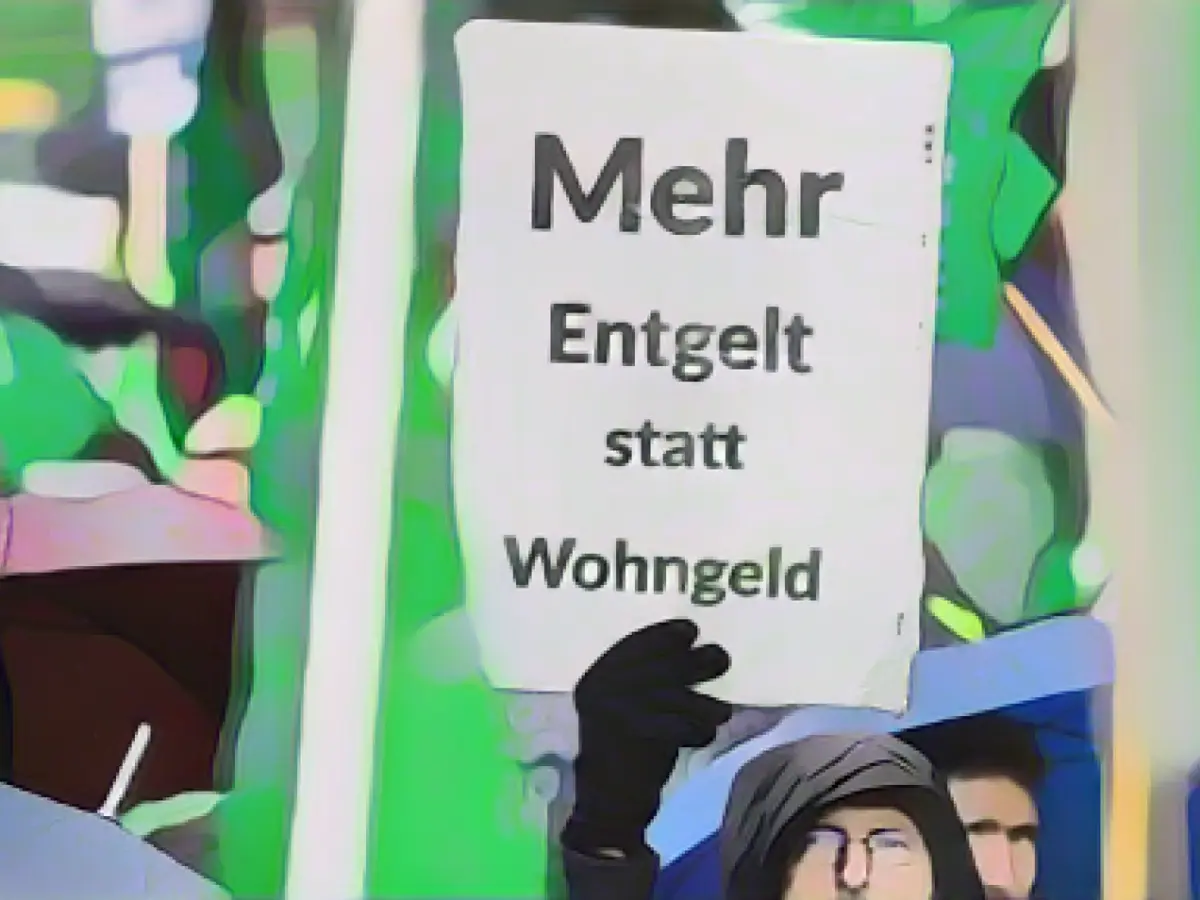In a significant demonstration, around 15,000 public sector workers in Düsseldorf voiced their demands for a significant wage hike during the ongoing wage dispute. The Verdi union's national chairman, Frank Werneke, called on the black-green government led by Hendrik Wüst to influence the situation positively. The dbb civil servants' association chair, Ulrich Silberbach, echoed this sentiment, stating that the current tax revenues should be distributed fairly. Both Verdi and dbb are pushing for a 10.5% wage increase and an additional 500 euros. However, the Tarifgemeinschaft deutscher Länder (TdL) employers deem this excessively unaffordable.
The third collective bargaining round, beginning this Thursday in Potsdam, could potentially be decisive. Besides Verdi and dbb, unions like GEW, police unions, and tax unions also participated in two parallel rallies in the morning. Thousands gathered, and around 15,000 protesters marched to the state parliament, holding signs like "I want to live, not survive" and "More pay for us is worthwhile for everyone."
Unions like GEW and the NRW police union (GdP NRW) warned that Hendrik Wüst's government might be jeopardizing the future viability of the state administration. They pointed out that competitive wages and salaries had been neglected for some time, resulting in a worsening skills shortage and increasing work pressure. This pressure is causing an unattractive public sector environment, as emphasized in a press release.
According to a dbb spokesperson, the public sector in NRW faces approximately 26,000 vacancies with a looming medium-term collapse. There is also a severe shortage of nearly 7,000 teachers in NRW, emphasized by the VBE state association, which underlined the resilience and professional competence of school staff in dealing with high pressure under exceptional circumstances throughout the years. The employers are being criticized for their "deeply disrespectful" treatment, as depicted by the GdP regional association.
Enrichment Insights:
The ongoing wage dispute in the public sector in Germany, specifically in North Rhine-Westphalia (NRW), has led to various strikes and warning actions by unions like Verdi and dbb. These actions aim to press for higher wages and improved working conditions for over 2.5 million federal and municipal employees. The unions are demanding an 8% wage increase or at least €350 extra per month, as well as three to four additional days off. The current round of negotiations ended without substantial progress, with employers failing to present counter-offers to the union's initial demands.
If no meaningful proposals are made during the third round of negotiations, the unions have announced plans to intensify their strike actions and protests. This includes a statewide day of action on March 6, involving warning strikes across various municipal and federal offices, as well as a central rally in Kiel. These strikes are expected to significantly disrupt public services, such as public transport, waste collection, and other municipal services, affecting commuters and public service users.
The unions' strategy involves close coordination and gaining public support for their cause. The public support is expected to influence the negotiations and potentially push employers to make more substantial offers. If this does not happen, the political pressure building up ahead of the federal election might compel both sides to resolve the dispute swiftly.








